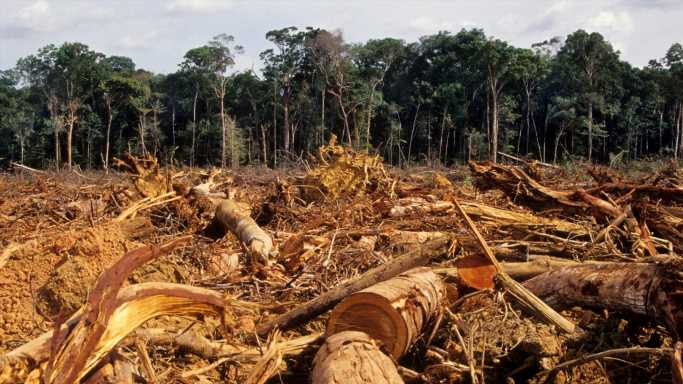World Bank Member to Provide Blockchain-Based Carbon Offsets
World Bank Group member International Finance Corp (IFC) said Wednesday it is co-launching a fund to provide blockchain-powered carbon offsets, according to Reuters. The move comes as the financial institution looks to tap institutional investors to support climate-change projects in developing markets.
IFC to Co-Launch a Fund to Offer Carbon Offset Credits Using Blockchain
International Finance Corp (IFC), a sister organization of the World Bank, said Wednesday it is teaming up with several partners to launch a Carbon Opportunities Fund, aimed at offering carbon offsets via blockchain solutions. The partnership seeks additional institutional investors to back climate-friendly projects across emerging markets.
The fund will be co-launched by IFC, sustainability finance firm Aspiration, blockchain firm Chia Network, and biodiversity startup Cultivo. As per Reuters, IFC plans to “only source, tokenize and sell unused credits from an established registry that pass its additional quality checks.”
Carbon offsets refer to credits that individuals or organizations can purchase to reduce their carbon footprint. Once an organization acquires the same number of carbon offset credits as its carbon footprint, it then becomes carbon-neutral.
IFC and its partners also want to provide such credits but through blockchain, as they believe this innovative technology can expand the use of carbon offsets more than traditional methods. Carbon credits are usually backed by environment-friendly projects such as tree planting, creating solar and wind power sources, and similar.
Blockchain Firms Joining the Climate-Change Battle
Multiple fintech companies have emerged in recent years to transform carbon offset credits into digital tokens, but those projects failed to gain the expected exposure due to concerns over the environmental benefits of some of the credits. Furthermore, blockchain and crypto mining firms have been widely criticized by environmentalists for consuming substantial amounts of energy.
Earlier this year, Coinshares reported that Bitcoin mining constitutes 0.08% of global carbon emissions, which is more than what 159 countries spend combined. Similarly, a recent investigation by Congressional democrats showed that major crypto mining firms consume as much energy as each home in Houston, Texas.
But it’s not all doom and gloom. An increasing number of crypto and blockchain companies have been making efforts to reduce their carbon emissions to help address one of the most urgent problems on the planet.
One of such developments is the Merge, which will see the world’s second-largest blockchain Ethereum transition to a Proof-of-Stake (PoS) model from Proof-of-Work (PoW). This event, which is expected to occur in mid-September, will reduce Ethereum’s carbon footprint by over 99%.
This article originally appeared on The Tokenist
Sponsored: Tips for Investing
A financial advisor can help you understand the advantages and disadvantages of investment properties. Finding a qualified financial advisor doesn’t have to be hard. SmartAsset’s free tool matches you with up to three financial advisors who serve your area, and you can interview your advisor matches at no cost to decide which one is right for you. If you’re ready to find an advisor who can help you achieve your financial goals, get started now.
Investing in real estate can diversify your portfolio. But expanding your horizons may add additional costs. If you’re an investor looking to minimize expenses, consider checking out online brokerages. They often offer low investment fees, helping you maximize your profit.
Source: Read Full Article

